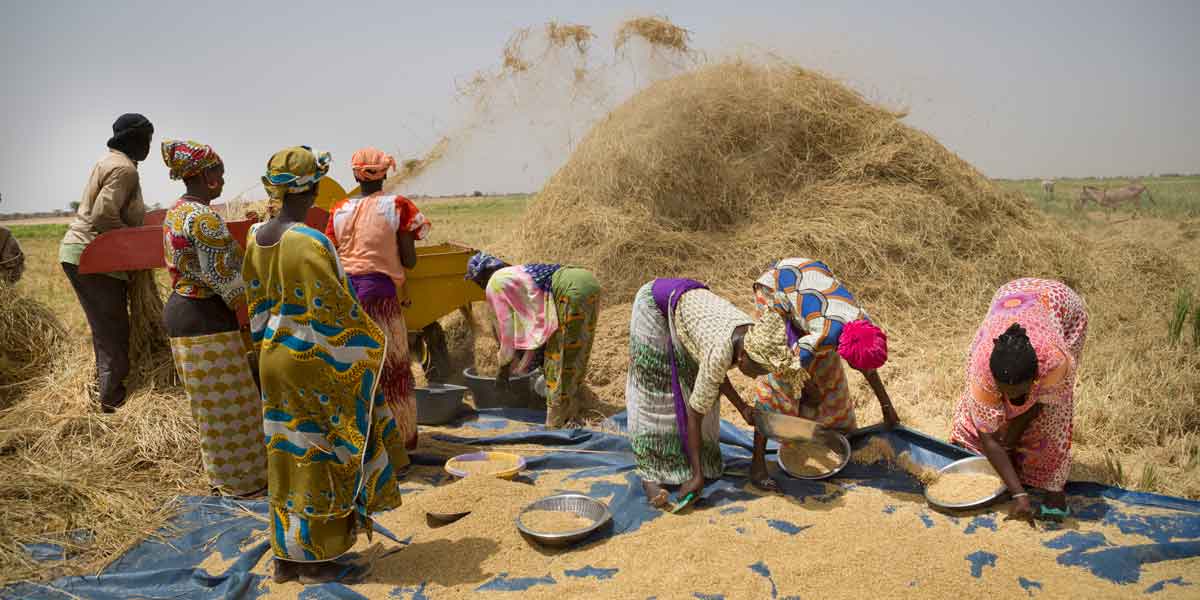
Jake Lyell for MCC
Women of the Namodiral women's group winnow rice in an area of northern Senegal that benefitted from an MCC-funded irrigation and water resource management project. MCC’s Constraints Analysis identified poor water infrastructure as one constraint to Senegal’s economic growth, and it was then targeted for investment as part of the Senegal Compact.
MCC recognizes that investment needs in its partner countries far exceed funding available in an MCC compact or threshold program. That is why MCC and the Organization for Economic Co-operation and Development (OECD) have partnered to help catalyze investment in the developing world.
All development partners, including donors, MCC partner governments and investors, are interested in achieving the greatest impact with their development dollars. By marrying the extensive research in MCC’s Constraints Analyses and the OECD Multi-Dimensional Country Reviews (MDCR), the alliance creates a foundation, or an initial guide, for the donor community to focus and inform their investment decisions and maximize their impact.
Through this collaboration, MCC and OECD are exploring how their respective tools can strengthen development in partner countries, maximize the impact of investments, and promote a more dynamic conversation around catalyzing investment in and around MCC investments.
MCC has always been committed to coordination with donors in its partner countries. Collaborations like this reinforce the 2005 Paris Declaration, the 2008 Accra Agenda for Action, and the Busan commitment to partnerships for effective development cooperation, and demonstrates the type of strategic partnerships MCC seeks.
Areas of Collaboration
Côte d’Ivoire and Senegal are the first focus countries for our collaboration, as both MCC and OECD have recently conducted country analyses and see alignment in recommendations and potential investment areas. MCC and OECD, in close coordination with the Governments of Côte d’Ivoire and Senegal, will share the results of our analyses and seek to catalyze investment interest in the priority areas identified.MCC and OECD intend to continue aligning the timing and collaboration of our constraints analysis and Multidimensional Country Reviews wherever possible. This allows us to develop a platform for sharing ideas and encouraging investment that reaches beyond and complements MCC investments.

